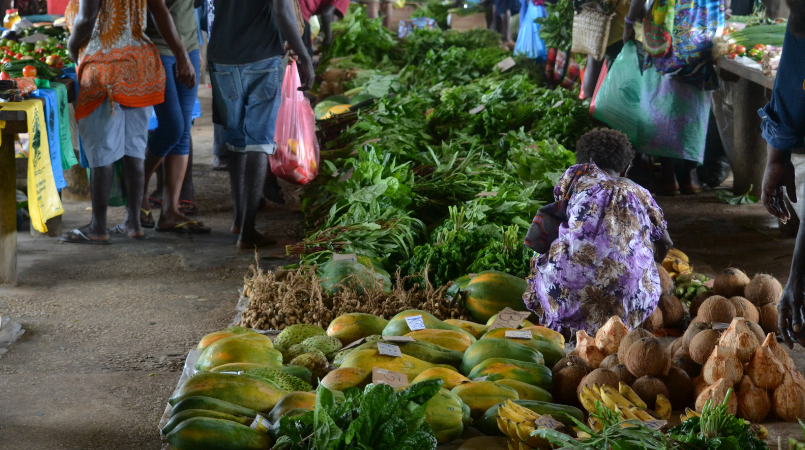
The mining and petroleum sector is not the backbone of PNG’s development, says Shadow Minister for Treasury & Finance, Ian Ling-Stuckey.
“At the recent PNG Mining and Petroleum Investment conference in Sydney, there were claims that mining was the backbone of the PNG economy. However, I must disagree with the way we present our economy to the outside world, including international investors.
“For there is no doubt that the real economic backbone of our country is our agriculture sector,” stressed Ling-Stuckey.
“The agriculture sector is the main source of livelihoods for over 80 percent of our population. Growing food in our gardens or fishing is the way of economic life for the vast majority of our people.
“Cash cropping income opportunities from coffee or cocoa or vegetables must be greatly expanded so that we can become the preferred supplier to the supermarkets of Asia. This should be the focus of our national efforts in promoting investment into our country and using the opportunities created by APEC. Unfortunately, these opportunities are being missed by the government.
“The mining and petroleum sector is of course a vital part of the PNG economy. Its contribution must be encouraged under the right conditions and ensuring a fair return for our landowners and the country as a whole. The possible adverse impacts of the resource sector on the rest of the economy also need to be managed to avoid the ‘resource curse’.
“Unfortunately, the 2019 Budget, with its big and irresponsible spend-up of extra mineral and LNG taxes and dividends, is just another sign that Treasurer Abel cannot manage our economy properly. The foreign exchange shortages that have been crippling our businesses over recent years is a further sign of how we are not managing the resource curse.
“International experts inform us that the resource sector has contributed about 16 percent of the economy and 13 percent of government revenues since 1980.
“So the vast majority of our economy, or 84 percent on average, has been from the non-resource sector. The latest consistent data from the PNG National Statistics Office shows that from 2007 to 2014, the agriculture, fisheries and forestry sector contributed K62.5 billion to the economy, larger than the contribution from the minerals and petroleum sectors combined. Yet, the government does not seem to prioritise recurrent and PIP funding for these three sectors, in fact, robbing their bank accounts blind under the Public Money Management Regularization Act 2017.
“Currently, with the surge in exports from the PNG LNG project, the resource sector does account for the vast majority of our exports, but most of this money goes to repay international loans taken out by the investors as well as paying dividends to their shareholders. Most of these export revenues actually go straight to non-residents and never even come back into the country.
“A better export measure would be how much actually comes back to PNG. Other export sectors such as agriculture, tourism and potentially more labour mobility income, offer much better opportunities for true export income.
“Such activities can see the benefits reach down to rural communities across the country rather than just around particular mine sites,” stated the Shadow Treasurer.
“Given the reality that agriculture is in fact the economic backbone of PNG, the Alternative Government would also consider promoting international investment conferences focusing on agriculture and other non-resource sectors of the economy. There is as much expertise in the agriculture sector in Australia as there is for the mining sector.
“However, the location of such an annual agriculture conferences should alternate between PNG and capital cities throughout the APEC region. This is how we should be using the opportunities of APEC – getting out and promoting PNG as the preferred supplier to supermarkets across the region.
“We must find niche markets and specialise in those areas where we have a true competitive advantage rather than hiding behind big walls created by tariff barriers. There is much more to gain from exports of organic PNG products than just focusing on rice and dairy farms which agriculture experts tell us have much lower returns.
“With the vast land mass of PNG and our massive wealth in biodiversity, there is a very bright future for agriculture exports. We just need a new government that will give agriculture and fishing the priority they truly deserve,” stated Ling-Stuckey.
